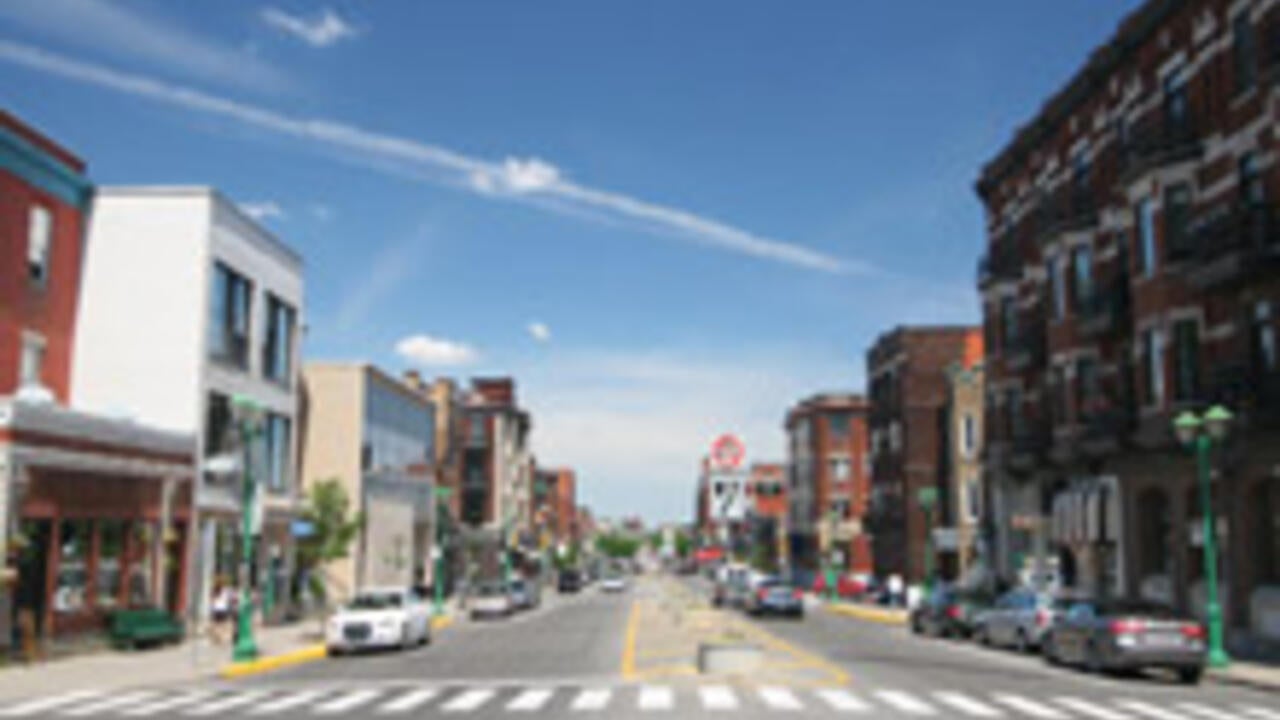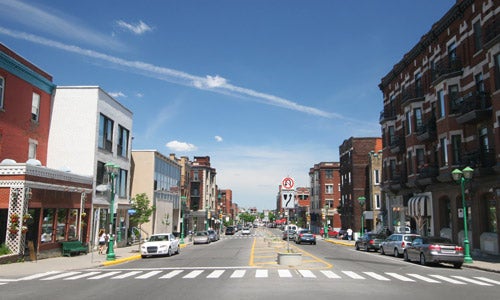
How small businesses can have a big impact on greenhouse gas emissions
Environment professor says municipalities play an important role in reaching Canada’s sustainability goals

Environment professor says municipalities play an important role in reaching Canada’s sustainability goals
By Nicole Bennett University Relations
Climate change is often discussed in terms of global treaties like the Paris Agreement or the Kyoto Protocol, but small businesses and municipalities play an important role in reducing greenhouse gas emissions, says a University of Waterloo environment professor.
“A fairly significant portion of greenhouse gas emissions is controlled at the city level, so the municipal scale is really where a lot of interesting strategies play out and where we can see greenhouse gas emissions in a tangible sense,” says Sarah Burch, a professor of Geography and Environmental Management at the University of Waterloo and Canada Research Chair in Sustainability Governance and Innovation.
Burch works across Canada and throughout Western Europe, examining solutions that cities are creating to combat climate change and promote sustainability efforts. She says a promising development is the partnership between municipal governments and small businesses that helps businesses measure and reduce greenhouse gas emissions in innovative ways.
A winery in British Columbia became Canada’s first carbon neutral winery by measuring its greenhouse gas emissions and making changes to reduce and offset carbon emissions. Tinhorn Creek Vineyards opted for lightweight glass wine bottles, which reduced the transportation weight of the bottles, resulting in less fuel consumption.
“Small businesses know their own operations and their own products better than anyone else, but with training, incentives, and support, they can be enabled to address them,” says Burch.
Waterloo Region has also been an environmental leader, as Kitchener was the first municipality in Canada to have curbside recycling. The Region now has a Climate Action Plan in place, in collaboration with local organizations and community members, with a goal to reduce greenhouse gas emissions by 2020.
“There’s a lot of work that can still be done here, but I think the time is ripe for accelerated action,” says Burch. “What’s innovative here in Waterloo Region, for instance, is Sustainable Waterloo Region’s approach to engaging with businesses and helping them understand where their greenhouse gas emissions come from, and find cost-effective strategies to reduce them. Organizations in the region are now addressing other aspects of sustainability, like water and waste.”
Beyond the implementation of greenhouse gas reduction strategies, says Burch, cities often craft more transformative strategies when they adopt a more holistic view of sustainability: “Sustainability isn’t just about reducing greenhouse gas emissions. It’s about creating communities that are more liveable, healthier and bio-diverse, as well as low carbon. The more we can find synergies between our climate goals and our other priorities, the more likely we are to deliver what I would call a transformative outcome.”
Waterloo professors address climate change action in Waterloo Region at panel discussion
Burch recently made a presentation at a public lecture called, #PowershiftWR: Transforming Energy in Waterloo Region. The panel, held at the Kitchener Public Library, explored how Waterloo Region’s relationship to energy will change in the coming decades. The panel also included Jatin Nathwani, a Waterloo professor of Civil and Environmental Engineering and the Executive Director of the Waterloo Institute for Sustainable Energy, and Heather Douglas, a professor of Philosophy and the Waterloo Chair in Science and Society.

Read more
An ambitious research collaboration with Habitat for Humanity is reimagining home ownership across Waterloo Region and Canada

Read more
Here are the people and events behind some of this year’s most compelling Waterloo stories

Read more
Researchers awarded funding to investigate ecology, climate change, repatriation, health and well-being through cultural and historical lens
The University of Waterloo acknowledges that much of our work takes place on the traditional territory of the Neutral, Anishinaabeg, and Haudenosaunee peoples. Our main campus is situated on the Haldimand Tract, the land granted to the Six Nations that includes six miles on each side of the Grand River. Our active work toward reconciliation takes place across our campuses through research, learning, teaching, and community building, and is co-ordinated within the Office of Indigenous Relations.